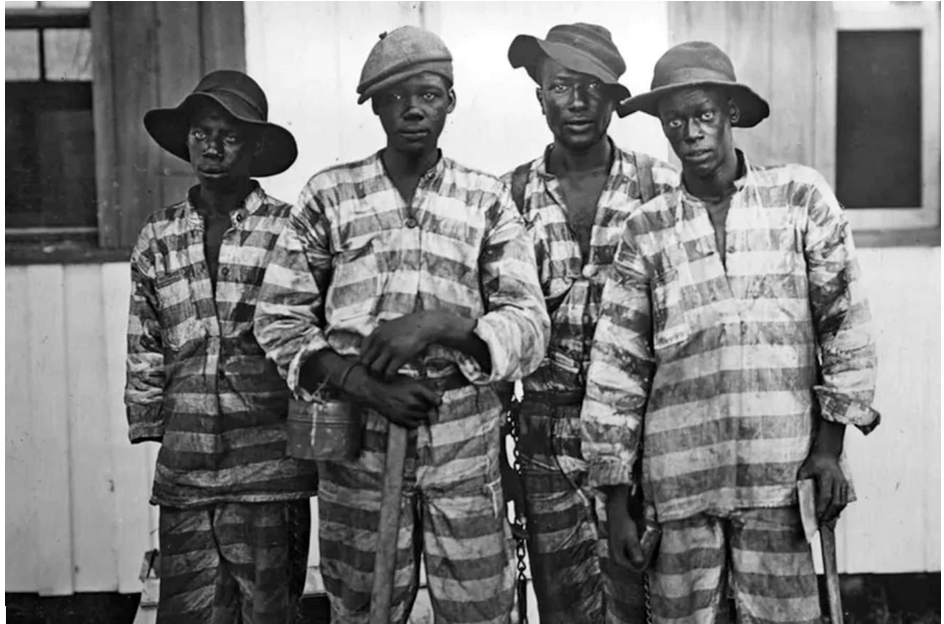
With the help of profiteering industrialists, white leaders in the early 1900s found a new way to build wealth on the bound labor of Black Americans: the convict lease system.
After fighting the bloodiest war in our nation’s history, the United States abolished slavery, or rather it tried to abolish slavery. The 13th Amendment of the U.S. Constitution reads:
Neither slavery nor involuntary servitude, except as a punishment for crime whereof the party shall have been duly convicted, shall exist within the United States, or any place subject to their jurisdiction.
Some individuals spotted a loophole between the first and second commas in that sentence, and created a system of what came to be known as peonage. Southern states created laws of various sorts to allow widespread arrests and then contracted out prison labor as a form neo-slavery.
As Wikipedia notes:
“Government officials leased imprisoned blacks and whites to small town entrepreneurs, provincial farmers, and dozens of corporations looking for cheap labor. Their labor was repeatedly bought and sold for decades, well into the 20th century, long after the official abolition of American slavery.”
Of course, nothing like this could happen today. Today our evolved sensibilities would never deprive people of their freedoms merely to benefit the greed of private interests.
Or would they?
Recently, the Tampa Bay Times quoted Hillsborough County School Board member Nadia Combs defending the board’s decision to deny renewal to four charter schools and to its refusal to open two additional charter schools:
“If we stop five or six charters from coming here, we’re saving the district millions and millions of dollars,” Combs said.
Where are the greedy private interests in the Hillsborough example?
American school board elections, sadly, make easy prey for a process that economists describe as regulatory capture. Unionized employee interests and major contractors have an intense financial interest in the outcome of school board elections. The public, on the other hand, lacks such an interest and will be lucky to know substantive differences between candidates if they vote in school board elections, which they usually do not.
Who wants the “millions and millions” described in the quote?
It doesn’t take much of an imagination to think of plantation owners in the 1940s making an argument similar to that made by Combs in the debate over ending peonage. After all, it was going to cost the peonage system’s users “millions and millions” to hire people through the normal process of mutual exchange.
The private interests benefitting from the Hillsborough school board’s decision likewise don’t much care about the autonomy of Tampa area families. They prefer to keep them in place so they can benefit from the funding associated with their education, whether actual learning happens or not.
Fortunately, Florida’s state lawmakers have been acting to draw district peonage to a close. Like the beneficiaries of the original peonage, the beneficiaries of this corrupt system are not going down without a fight.
A family without the means to exercise choice in education will be used as funding unit peons by private interests. Choice, however, involves voluntary rather than compelled associations. It’s long past time for K-12 education peonage to end.